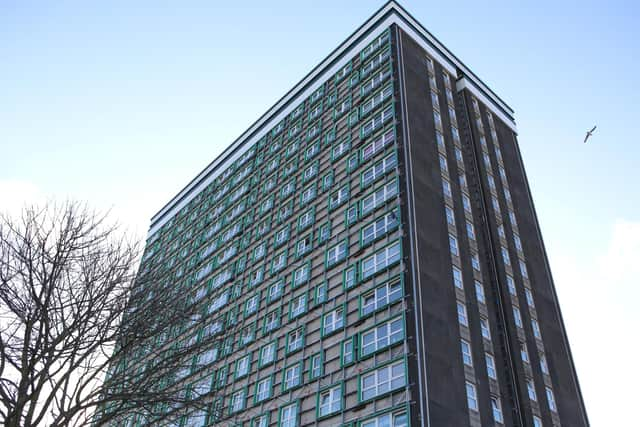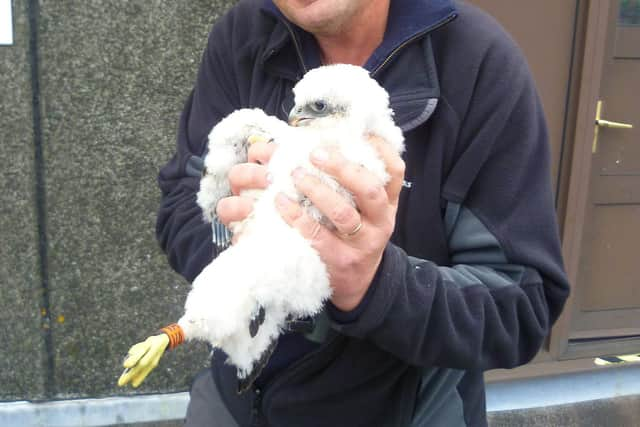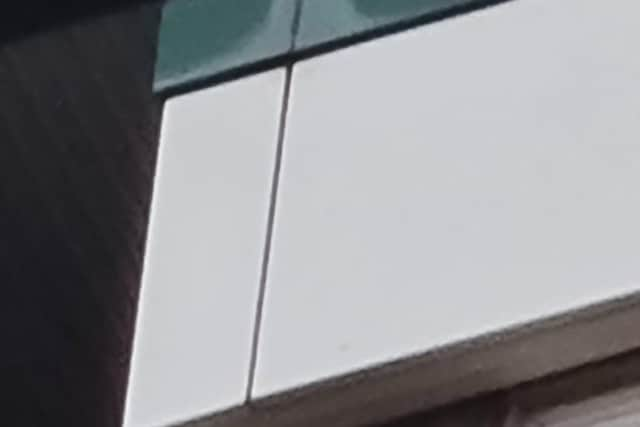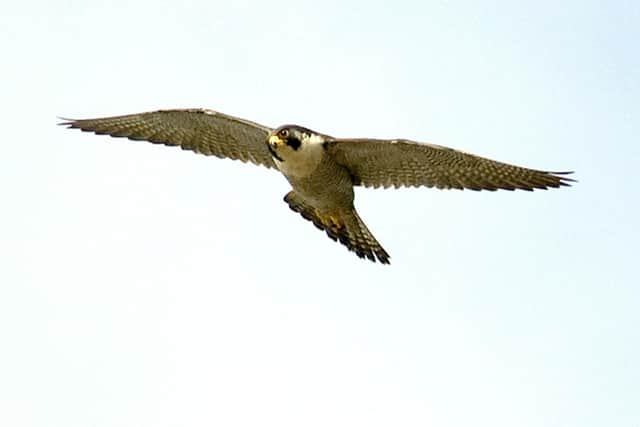Peregrine falcons have been in city 'a while' after 'five sack loads of dead pigeons' found near Horatia House
and live on Freeview channel 276
The revelation comes following the discovery of the protected bird of prey at Horatia House, Somers Town, earlier this month - potentially throwing a spanner in the works for £12m plans to take down the tower block.
But Keith Betton, chairman of Hampshire Ornithological Society who is licensed by Natural England to watch peregrines, said the discovery was the first known case in the city where the birds have been found nesting.


Advertisement
Hide AdAdvertisement
Hide AdHe said: ‘I wasn't aware of this nest but I am not surprised as two years ago workers on a nearby block in Middle Street removed five sack loads of dead pigeons from a cavity in the roof.
‘Clearly the birds have been in that area for a while.’
Mr Betton said it was a ‘mystery’ why there had been no peregrines nesting in Portsmouth when in Southampton there were up to four known pairs, while in Hampshire there were 20 overall.
The volunteer, who has monitored 20 nests this year, said he was aware of five locations across the city where peregrines were seen including on a Royal Navy hangar at the dockyard and St Jude’s Church, Southsea.


‘They have been seen at different places but there has never been any nesting,’ he said. ‘I saw one at Horatia House two years ago at the same time of finding the dead pigeons in Middle Street.
Advertisement
Hide AdAdvertisement
Hide Ad‘The timing is a surprise as peregrines finished breeding in June or July. At all the nests I have watched their chicks were away and flying at least a month ago.’
Peregrines are a schedule 1 species under the Wildlife & Countryside Act 1981 and have full protection - as do their nests whilst in use.
The peregrines, the fastest birds in the world which can reach 240mph when nose diving to catch prey, were found by Kelly-Marie Turner and her partner Darren Barnett, who live opposite Horatia House in Sir Robert Peel House, Astley Street.


Darren confirmed he heard more ‘squawking’ late on Thursday evening from the birds.
Advertisement
Hide AdAdvertisement
Hide AdThe peregrines in Horatia House led to an acceptance from Portsmouth City Council it may have to delay plans to take the building down. During work to take off cladding after the Grenfell Tower disaster, problems were found in the concrete structure which would have been too expensive to repair. Nearby block Leamington House is also due to be ripped down for the same reasons.
Guy Shorrock, senior investigations officer at RSPB, said last week: ‘Once the offspring have fledged and the nest site is no longer in use it technically has no protection.
‘Some peregrines in the uplands may move away in the winter to find better feeding areas but I expect at most urban sites the peregrines will be around most or all the year.’


However, Mr Betton said: ‘You can’t demolish a nest site but when the birds have finished nesting you can demolish a building.
Advertisement
Hide AdAdvertisement
Hide Ad‘There’s nothing stopping you demolishing a building with just peregrines. Year on year having peregrines on buildings is not enough to stop them being demolished.’
Mr Betton added peregrines now nest on vacant buildings because it is ‘what they learnt’ after former generations ‘took advantage’ of inhabiting empty blocks in the 1970s.
There are potential downsides to urban peregrines, though, both for the bird and people.
‘Before when they were learning to fly on a cliff they would end up in the sea but now they could end up on the road or pavement and could hit a car. Fortunately people are very good at helping birds they see in trouble,’ Mr Betton said.
Advertisement
Hide AdAdvertisement
Hide AdMr Betton is also hoping to help launch a nesting box in the city in the next two years.
A city council spokesman said: ‘We have visited the site and confirmed that there are no falcons currently nesting at the block, we are in ongoing conversations with the RSPB regarding any other action that we should consider in future.’
The spokesman did not say whether the council would now be able to knock down Horatia House.
A message from the Editor, Mark Waldron
Thank you for reading this story. The dramatic events of 2020 are having a major impact on our advertisers and thus our revenues.
The News is more reliant than ever on you taking out a digital subscription to support our journalism. You can subscribe here for unlimited access to Portsmouth news and information online.
Every subscription helps us continue providing trusted, local journalism and campaign on your behalf for our city.
Comment Guidelines
National World encourages reader discussion on our stories. User feedback, insights and back-and-forth exchanges add a rich layer of context to reporting. Please review our Community Guidelines before commenting.